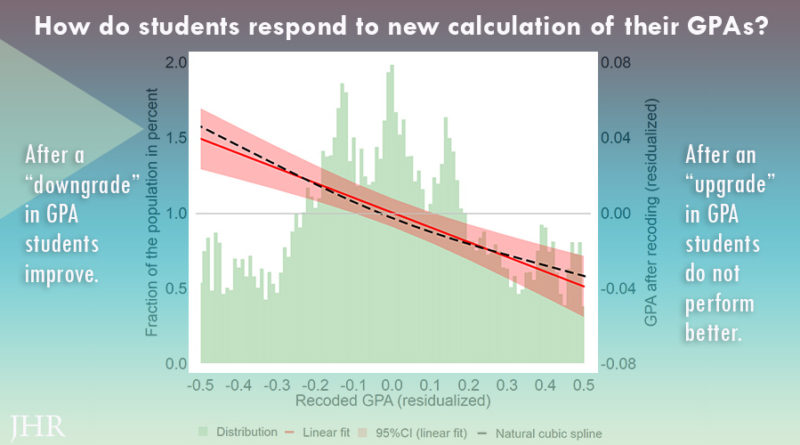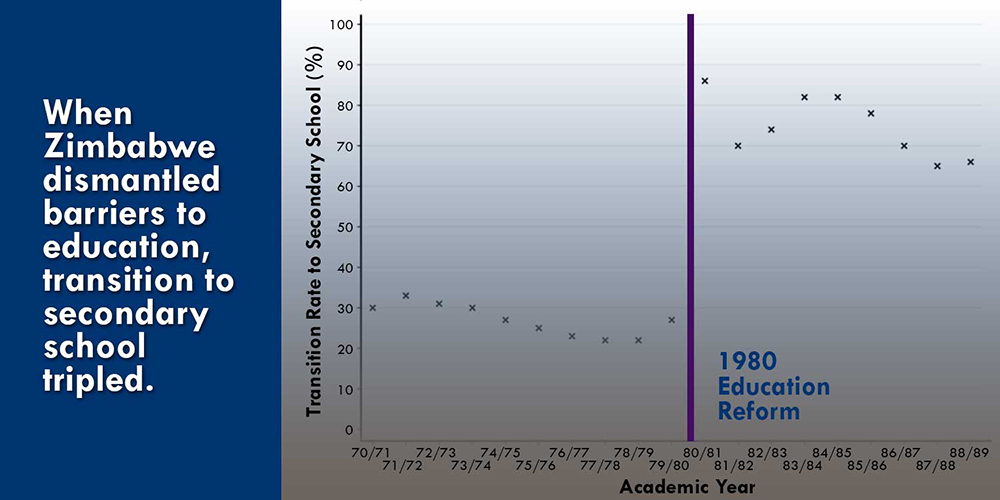How Do “High-Stakes” Grades Affect Student Behavior?
Grades, including evaluations by teachers, standardized test scores, and exam results, can affect student behavior for at least three reasons. First, grades give students feedback on how well they master a subject, and students may increase their effort if they do not understand the material as well as they thought. Second, if grades provide students with information about the return on their effort, they may update their perception of how much effort they should put into their education. Third, grades may involve “high stakes” if they affect the student’s chances of accessing higher education programs or getting a job. A student who has lower grades than required for the desired program may increase their effort. Ulrik Hvidman and Hans Sievertsen examined the importance of the third reason by asking the question: Do grades affect student behavior because they are high stakes?
To identify how the high-stakes aspect of grades affects student behavior, researchers need variation in grades that do not convey any information about the students’ performance. Hvidman and Sievertsen took advantage of a Danish grading reform in 2007 that involved a recoding of high school students’ grades, which caused variation in their grade point average (GPA) and, thereby, affected their chances of university enrollment. They analyzed how this change in students’ GPA affected their performance in subsequent high school exams.
As the figure shows, students who were downgraded due to the recoding (recoded GPA below 0) did better in subsequent assessments. This pattern is consistent with the explanation that students have a “target” GPA, and once they experience a shock to their GPA, they adjust their effort to reach their target.
Interestingly, the effect shown in the figure was driven by young women. The behavioral response by young women was large enough to shift them into enrolling and graduating from university after high school. To test whether the way the grades were recoded was related to unobserved student characteristics that could compromise the research design, the team implemented the same recoding of grades on three groups of students who were not affected by the new grading reform and found no effects for any of these cohorts.
Read the study in the Journal of Human Resources: “High-Stakes Grades and Student Behavior,” by Ulrik Hvidman and Hans Sievertsen.
***
Ulrik Hvidman (@UlrikHvidman) is an assistant professor at the Department of Political Science, Aarhus University. Hans Henrik Sievertsen (@hhsievertsen) is a lecturer at the Department of Economics, University of Bristol.




